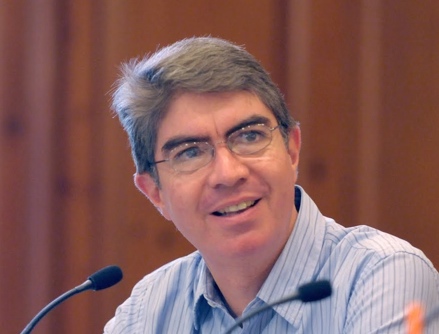Cinema through a cloudy eye
Bolstered by Akira Ifukube’s trudging “Gojira” theme and the shorthand it affords, on two separate filmic occasions director Leos Carax chose to pair it with a city-scrolling vista, and in doing so reference his past work for the first time. Homage and visual motifs have always earmarked the enigmatic auteur’s films, namely in the unstable romances of “Boy Meets Girl” and “Les Amants de Pont Neuf,” but within his two most recent efforts — a section of the 2008 triptych “Tokyo!” and his 2012 vexing “Holy Motors” — he centers this rare repetition on one character that is not so much a reprisal as it is an emotional transformation.






